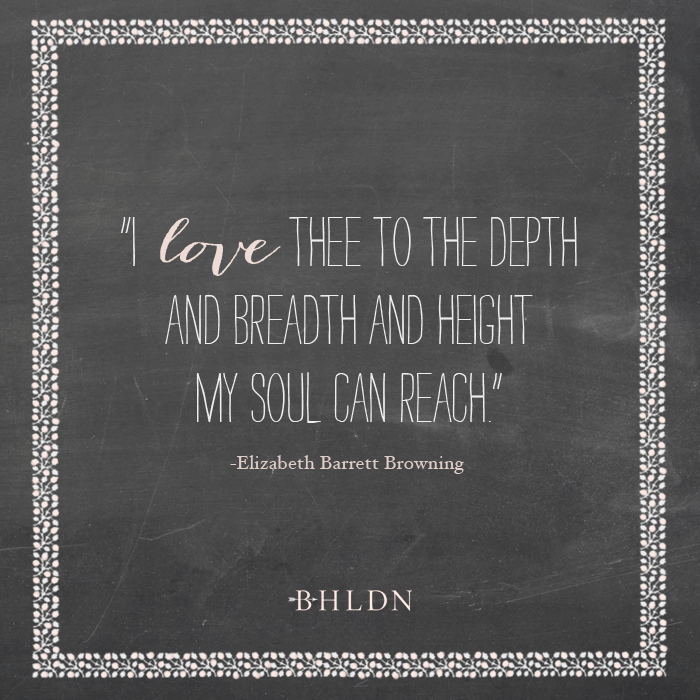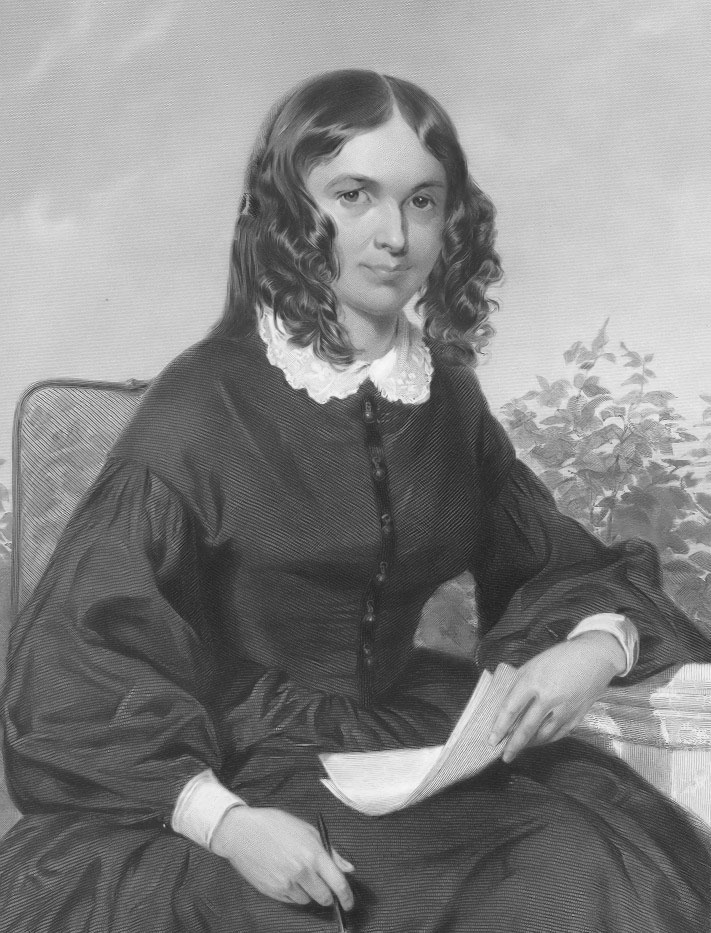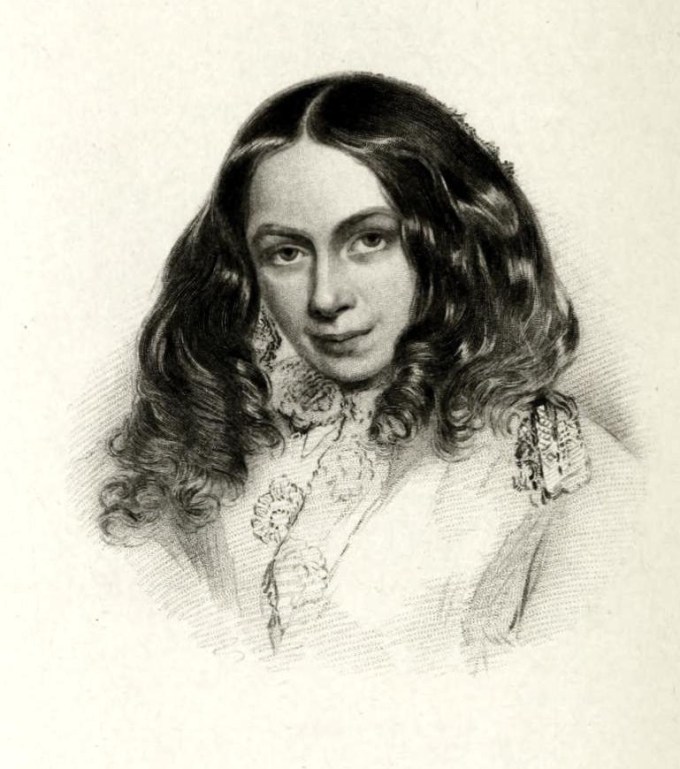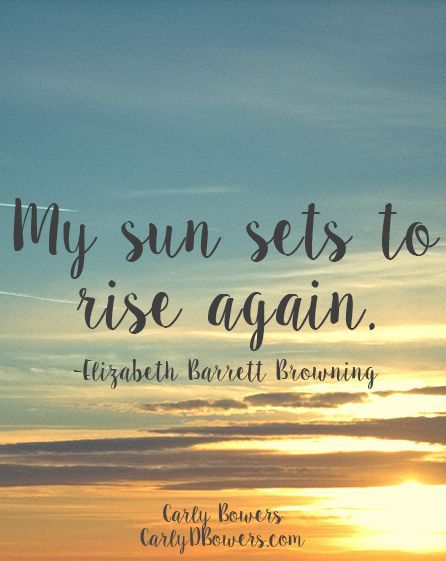Todays blog celebrates one of the many authors that we know the name of but few facts about. Despite a family wealth in the slave trade she was an abolitionist, she was a major supporter of child labor rights… and the first in her English-descended family to be born in the United Kingdom in over 200 years. Today’s blog honors one Elizabeth Barrett (later Elizabeth Barrett Browning)… poet, lover and worldwide literary influencer.

Elizabeth Barrett was born on March 6th, 1806 in Durham, England. As the first Barrett to be born outside of Jamaica since 1655, her birth was the cause for much celebration. Her family’s wealth had come from sugar plantations in the island country, meaning that her family did benefit from slave labour in running their grand plantations. Elizabeth was the eldest of twelve children, all but one of which would live to adulthood. Elizabeth’s childhood was fairly sweet and standard – full of family picnics, home theatricals and pony rides. However, unlike some other children (and definitely little girls) of the time, Elizabeth fixated on books and began writing, even as a four year old child. She was intensely studious, learning the Greek language by the age of ten and writing her own Homeric epic poem by eleven. Since both of her parents encouraged, published and saved her work, Elizabeth Barrett has one of the largest collections of juvenilia of any English-speaking writer.
 A young illness affecting her spine and movement led to Elizabeth being given (and then continuously taking) laudanum, morphine and opium as a child for pain. Being addicted to these somewhat serious drugs and taking them throughout her lifetime is generally acknowledged to both have helped and hindered her in life. Her constant frail health was negatively affected by these chemicals, but they also may have contributed to her originality and imagination when writing her poetry.
A young illness affecting her spine and movement led to Elizabeth being given (and then continuously taking) laudanum, morphine and opium as a child for pain. Being addicted to these somewhat serious drugs and taking them throughout her lifetime is generally acknowledged to both have helped and hindered her in life. Her constant frail health was negatively affected by these chemicals, but they also may have contributed to her originality and imagination when writing her poetry.
Barretts late teens and twenties were fraught with trauma and tragedy. Her mother passed away in 1828, and her grandmother just a few years later. After moving to the Devonshire coast to aid her frail health (by this time she had possibly contracted tuberculosis), Elizabeth endured the loss of two of her brothers. One caught a sickness visiting the family plantations in Jamaica, and the other, her favorite brother, sadly drowned in a sailing accident while visiting her in Torquay. The guilt of this tragedy stayed with Elizabeth for the rest of her life.
 In 1841 Elizabeth’s life seemed to begin to turn itself around. She was struck with a few years of intense creativity, which led to the publication of several of her greatest works. Her 1842 poem “The Cry of the Children” published in a Blackwoods magazine helped bring about child labor law reform. In 1844 she published not one but two volumes of poetry, which were immediate successes. She was suddenly a household name. It was her poetry that inspired one Robert Browning to write to her and tell her of his love for her writing. They met and instantly became ardent devotees of the other. Both Browning and Barrett’s works improved (despite their work already being popular with the public). After meeting Browning, Barrett published her most famous works Aurora Leigh and Sonnets from the Portuguese. The marriage between Browning and Barrett was carried out in secrecy, and once found out Barretts father disinherited her (as he funnily enough did to all his children who married). They made their permanent residence in Italy, where they raised their son, Pen, and befriended many influential writers and artists of the day.
In 1841 Elizabeth’s life seemed to begin to turn itself around. She was struck with a few years of intense creativity, which led to the publication of several of her greatest works. Her 1842 poem “The Cry of the Children” published in a Blackwoods magazine helped bring about child labor law reform. In 1844 she published not one but two volumes of poetry, which were immediate successes. She was suddenly a household name. It was her poetry that inspired one Robert Browning to write to her and tell her of his love for her writing. They met and instantly became ardent devotees of the other. Both Browning and Barrett’s works improved (despite their work already being popular with the public). After meeting Browning, Barrett published her most famous works Aurora Leigh and Sonnets from the Portuguese. The marriage between Browning and Barrett was carried out in secrecy, and once found out Barretts father disinherited her (as he funnily enough did to all his children who married). They made their permanent residence in Italy, where they raised their son, Pen, and befriended many influential writers and artists of the day.
On this what would be her 214th birthday, we honor this timeless writer – one who inspired Edgar Allen Poe and Virginia Woolf alike. And we give you a parting few lines…


